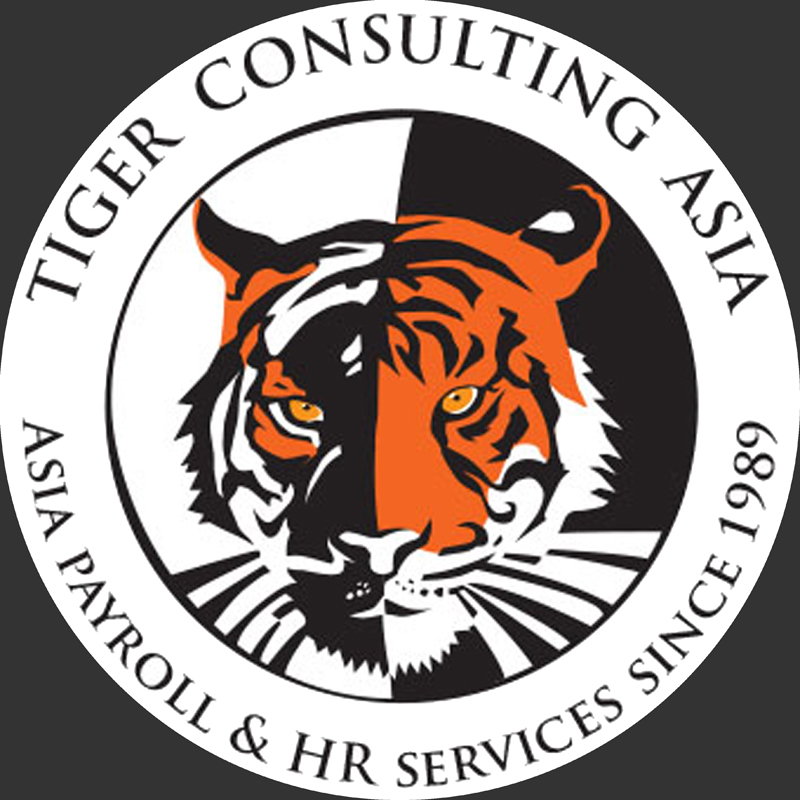
TIGER CONSULTING ASIA

HR and Payroll Outsource Services, Employment Services, Manpower Contracting

Key changes impacting businesses across Asia Pacific include bonuses, medical benefits, taxes and skill sets, according to the American-owned and managed HR, Payroll and Employment Services Outsource Firm
San Diego CA, October 30, 2012
Tiger-Consulting, an outsource firm which provides HR, payroll and business support services in Asia to help Western companies jump start their Asia-Pacific operations, today named the top 10 Asia business trends impacting the satellite operations of its 100+ U.S. and Europe clients. According to Tiger-Consulting founder and CEO, Neil Satterwhite, an American Expatriate with 40+ years in enterprise HR and payroll, the key trends highlighted in this report are impacting businesses across the dozen Asia-Pac countries the firm currently serves including Australia, Cambodia, China, Hong Kong, Indonesia, Korea, Malaysia, Philippines, Singapore, Taiwan, Thailand and Vietnam.
“As 2012 comes to a close and we continue to see growth and changes in the Asia business environment, we are providing another value-add to clients and prospects in the West with this roundup of key trends that may impact business pursuits in Asia through 2013,” said Satterwhite.
- Income tax levels remain steady - This is the good news. Satterwhite notes it’s important to keep taxes steady in a climate of rising costs across other key categories in the remainder of this trend list.
- Annual salary is increasing - Salary increases tend to keep pace with economic growth in a given country. Increases beyond “keeping pace” such as the gains we’re seeing in Asia are typically related to supply and demand in the market place for specific skills and experience.
- Cost of medical benefits rising - Asia businesses are experiencing a 10-20% hike in the cost of employee medical benefits. The reason for the increase throughout Asia is due to the rising cost of medical care. In most Asian countries medical benefits are not mandatory. They are optional benefits provided by employers. Still, the increasing cost of medical benefits in Asia is a fraction of the cost of similar benefits in the U.S. or Europe.
- Low-cost health plans now more attractive - As a result of the aforementioned trend, lower cost “local” health plans are now becoming more attractive to employees in each of the dozen Asia-Pacific countries Tiger-Consulting serves. Satterwhite says the more costly international plans employees have opted for in the past are rapidly becoming “a thing of the past” as more foreign workers migrate to Asia looking for job opportunities based on local employment rules where medical benefits are not mandatory. Few companies offer medical benefits and even fewer offer expensive international plans.
- Retirement plan options are improving - Satterwhite notes in some Asian countries the firm serves, such as Thailand, employee retirement plans are improving with companies offering retirement plans to supplement the government mandated Social Security system.
- Bonus incentives are increasing - Bonuses (approx.10-25% of sales or earnings) are typically based on company and employee performance. Western and European companies want to grow quickly in Asia, so they are recruiting top-level sales staff and reward them handsomely for “slaying dragons”.
- Recruiting well-educated, English-speaking local staff now easier - Satterwhite says, 20 years ago, when he started managing satellite operations for Western enterprises in Asia, it was challenging to find talent and fill key positions particularly when seeking English-speaking, local college grads with applicable experience. The CEO says recruiting is now becoming far easier in most countries in Asia. He’s even seeing a growing number of highly-qualified, MBA-level local employees. He attributes this to Asia’s increasingly sophisticated business culture and prioritization of higher-education.
- Employees now more aware of their rights - Satterwhite says that employees in Asia are increasingly aware of their rights under local country labor laws and regulations. The era when employers were able to easily exploit their staff is over. Employees know their rights and employers are now more careful.
- Western companies expanding across Asia - Tiger-Consulting is seeing that American, European and Australian companies are branching into multiple Asian countries like never before with key executives, regional directors and sales staff. They see Asia as a region where it’s still possible to hit the ground running and build a business that can increase 50-100% in each of its first five start-up years. They see the economy is tight at home and Asia is the next frontier.
- PEO (Professional Employment Organizations) - PEOs are expanding across Asia. While Satterwhite contends that firms such as Tiger-Consulting have long been used for payroll, human resource and benefits management, its PEO services are becoming more popular with companies wanting to branch into new countries where they do not have or want to register their own legal entity.
“We are seeing stronger growth in Asia than we have seen for 20 years. New customers cite struggling U.S. and European economies as the impetus for their growing interest in finding ways to make up the difference,” added Satterwhite.
Honorable Mentions:
- Leveling of international skills - Satterwhite contends this is happening across Asia and is changing the landscape of how and by whom support services are provided. For example, Satterwhite notes that Indian firms are in high demand for IT services in Thailand.
- Decreasing optimism about branching into China and Vietnam - Satterwhite says this trend is cooling off due to the increased costs and complexity of opening up shop in these areas, which has consequently, resulted in higher risk to foreign companies.
- International companies want to hire locally - Satterwhite says that in previous years, Western-based businesses placed expatriates in foreign countries to launch operations. However, he says that the firm is hearing from an increasing number of American and European companies preferring a “leaner, meaner” approach that leverages local talent hired and led by payroll, HR support firms that know local employment laws and regulations.
“This will be a quarterly report moving forward, for which we invite questions and research requests. We are also now offering private vertical industry reports as a new service,” Satterwhite said.
About Tiger-Consulting
Tiger-Consulting is committed to making expansion and management of Asian and
UAE operations easier for international businesses. Tiger Consulting’s HR,
Payroll, employment and business support services are managed by experienced
teams on the ground in 16 countries: Australia, Cambodia, China, Hong Kong,
India, Indonesia, Korea, Malaysia, New Zealand, Philippines, Singapore, Taiwan,
Thailand, Vietnam, UAE and USA. Through strategic partners, the firm also
supports clients in Europe, South America, and other key markets.
.jpg)
Media Contact: Mercy Mildener
Tiger-Consulting
T: +(66) 02-6846909
mercy@tiger-consulting.net
|
|










